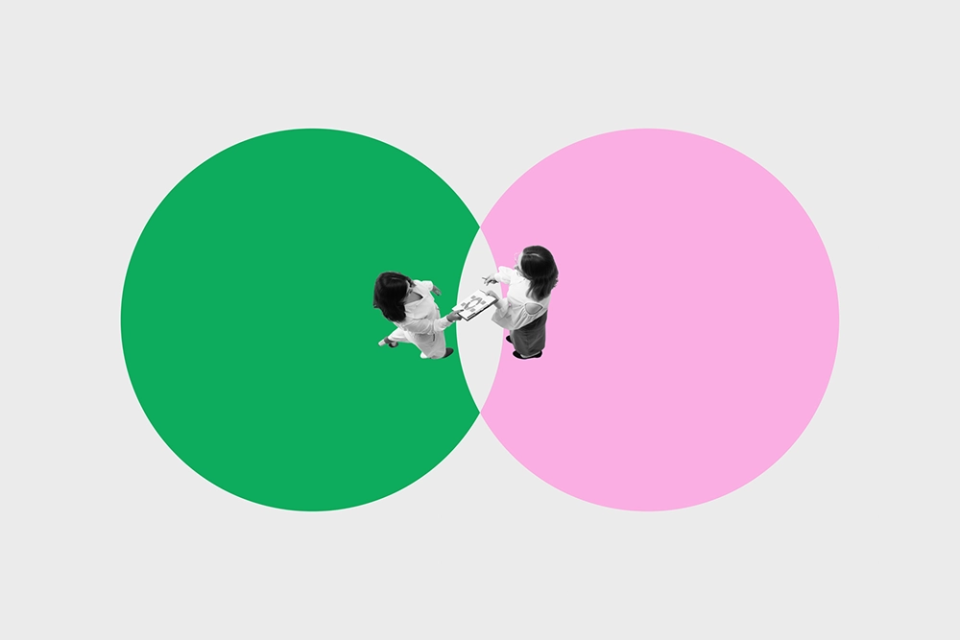Video transcription: This month I wanted to share with you a little exercise that I did with a group of subject matter experts. Very experienced trainers, facilitators, people who really knew their subject. Sometimes I find that when people really know their subject they find it difficult to understand what it was like not to know their subject and so difficult to take the perspective of somebody who's coming to this as a complete novice. I asked them to make an origami crane, now I know this is the kind of trainer trick and little exercise that some in the learning and development industry absolutely hate with a passion.
There are people who are constantly on Twitter saying that this sort of stuff drives them mad and well they're entitled to their opinion I guess but it's one that I disagree with because sometimes you do have to create experiences for people which are a little out of the ordinary, something which takes them away from the day to day. This group of people have been doing pretty much similar stuff for a number of years and doing it well. There's a good reason why this approach had endured, it endured because it worked, because it was very popular with people but they recognized that in much more challenging times when people are overstretched perhaps working really hard at the limits of their capabilities. It can be sometimes a little difficult to help people to transfer new things new ways of behaving new ways of acting back into the workplace.
So I wanted to create a situation where. They were coming to an activity. For the first time. Now what I did is I give them a piece of e-learning and in that e-learning I had linked to a YouTube video and downloaded a set of instructions off the internet about how to do this. And to be fair some of them turned up to the classroom event. Having made an origami crane all on their own. They brought with them they were very proud of them and so they should have been they were great.
But they haven't learned how to do anything what they've done is they've followed a set of instructions in some ways I never learned how to put together any IKEA furniture. I just followed the instructions and when the time comes to move to a new house or relocate that particular piece furniture I'm as lost as the next person. So, what I wanted to do was to give them that experience and I proved to them that I hadn't learned it by doing it once by giving them a sheet the paper said get on with it. And of course, nobody could. So, we went through it step by step. We took each of the stages and some of the groups helped each other out people who were getting lost or missed a step were being given support by their colleagues it was a very collegiate way of working and eventually everybody in the group, about twenty of them. All managed to make an origami crane which I thought was a pretty good result.
And then I asked them what would it take if you were to become skilled at that? By skilled. What I meant was that they could do this without following the instructions and every version that they created was at least as good as the one that they just made with guidance.
They brainstormed that for a while and they came up with things which we could probably all predict. They come with the idea that they needed quite a lot of time that that time should be given to them with resource but also without pressure so that it didn't matter if they weren't very quick or if some of the results weren't very good and they should be able to do that for as much as they wanted before they were then judged to have completed the learning activity.
They also said that they wanted access to somebody who could help, somebody knew more than them somebody they could turn to say I've gone wrong where have I gone wrong? That was an important part of the process but what they also said they needed quite rightly I think was motivation why would they bother? Because doing something new, doing something for the first time is always slightly uncomfortable. Doing something repeatedly until you get good at it when it's uncomfortable is a bit of a big ask really isn't it? It's not something that we'd all want to do. So, they need motivation where does this fit in? How does this add value? How does this make my life easier or improve the service that I'm able to provide to my colleagues or to my customers or to the service users that I work with? If you think about that does the minimum requirements for any learning activity because what they also said is important is not only that they would need all those things but they need all those things immediately. They need to do this while it was still fresh in their mind. They need to go on practice now, not in three or four weeks or three or four months’ time. They need to be able to use these things immediately.
What I didn't tell them at least not until afterwards was that the first time that I'd made one of these was thirty-six hours earlier. Fortunately, I got a good teacher. My partner is not only somebody who makes these particularly well but he's also a skilled teacher educator. So, she worked with me and helped me learn how to do this. Constant repetition but also spaced repetition so that I try them out in the evening and then I try them out first thing in the morning. So, I was making these things over breakfast on the two days before I went into the session. And of course, I had that motivation which is I had to stand up in front of twenty people show them how to do this but I also had that joy that joy of learning how to do something new it took me back to a time when I was five years of age sat with my grandfather who died shortly afterwards. He was a very taciturn man and he would sit silently folding paper and I a bubbly effervescent loud five-year-old was silent next to him fearful of breaking the spell as I watched with rapt attention as shapes and animals and creatures emerged from his old fingers.
I wanted to get back to some of that. I wanted to help people to understand that actually we don't learn as 21st century computer generated beings. We learn in much the same way as we did when we were children. We need the opportunity to play sometimes. The opportunity to try things out. Above all we all need the opportunity to share in the joy of overcoming a little incompetence.








.webp)